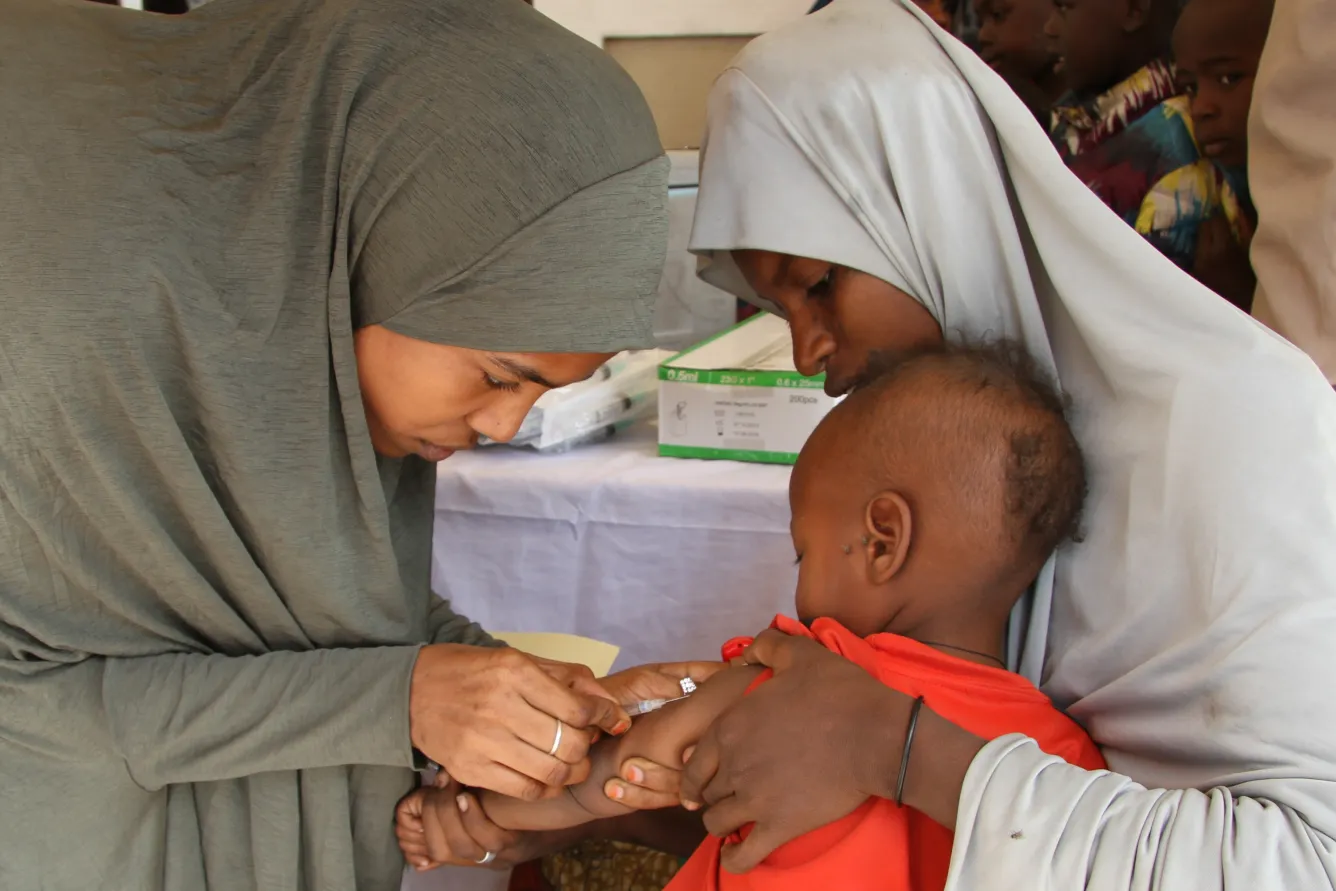In conflict-affected regions like northeast Nigeria, children miss out on life-saving vaccines.
Anyone with access to a TV, or even a smartphone has unlimited access to images of the destruction that armed conflict causes around the globe. We can see details of the ways war and violence threaten and disrupt children’s lives.
But conflict also attacks the systems that support the routines of daily life. Though rarely captured in news alerts, conflict also cripples health, nutrition, water, sanitation and hygiene services. Access to life-saving immunization too often is a casualty of the breakdown of these essential systems. The result is that, during conflict, millions of children miss out on the basic vaccines they need to stay healthy and have a fair chance in life. Most often the children affected are the most vulnerable to disease.
In a major vaccination campaign concluding in January, 4.7 million children were vaccinated in response to a measles outbreak in northeast Nigeria. The campaign covered the three states most affected by the Boko Haram conflict – Adamawa, Borno and Yobe – where insecurity has limited vaccination efforts. In 2016, there were approximately 25,000 cases of measles among children in Nigeria; 97 per cent of the cases were in children under the age of 10 and at least a hundred children died.
“Security has improved in some areas so we have acted quickly to access places we could not previously reach and protect children from the spread of a very dangerous disease”, said Mohamed Fall, UNICEF Representative in Nigeria. “We are still extremely concerned about children living in large areas of Borno state that are not yet accessible.”


